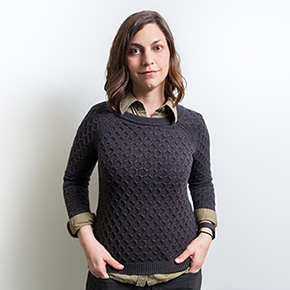Each fall, in the weeks leading up to the Jewish holiday of Yom Kippur, I put time aside to contemplate forgiveness and atonement: Who have I hurt that I can come clean to, or ask forgiveness from? What angers or resentments am I holding on to that could be freed?
I’ve witnessed remarkable resolutions between people in my life, directly enabled by their observance of Yom Kippur.
Religious traditions aside, what prompts people to ask for forgiveness? What holds us back from forgiving others? Is one seen as more difficult than the other to do in practice?
We built a series of questions into a March 2019 survey of 1,000 Florida voters to learn more.
First, we asked, “Which do you find easier to do – ask for forgiveness, or give forgiveness?” Overall, nearly three-quarters (72%) said it is easier to give forgiveness than to ask for it.

Interestingly, this is even more the case for those older than 55, where 8 in 10 say it’s easier to forgive others than to ask for it themselves, compared with 68% of those younger than 55.
Perhaps this means that the ability to forgive grows with age – or perhaps it means that admitting mistakes becomes harder to do. No segment of the population finds it easier to ask for forgiveness.
Why is this? We can gain some insight from responses to the next question: “In your experience, what has made it difficult to ASK for forgiveness from someone you may have hurt?”
The most common answer, provided by 53% of those who identified at least one challenge, was “difficulty finding the right words.” This was followed by not wanting to reopen wounds (48%), fear of not being forgiven (32%), difficulty admitting wrongdoing or responsibility (30%), and fear of feeling weak (10%).
When it comes to things that make it difficult to forgive others, a different mix of emotions is at play.
More than half of those who find something challenging about granting forgiveness say they fear getting hurt by that person again (53%) or still feel angry (51%). Another one-third (34%) say they don’t want the other person to “feel off the hook,” while 19% say they don’t want to give up the right to still feel angry in the future. Just 1 in 7 (14%) avoid forgiving others out of fear they’ll feel weak or look foolish.
These findings suggest that overall, people generally want to forgive and to be forgiven, and they don’t believe doing so makes them weak or foolish.
There are plenty of good, necessary, or self-preserving reasons to avoid asking for or giving forgiveness. But for the many who would like to do so, it may just be just a matter of finding the right words. Perhaps setting aside time to reflect, whether through the observance of a holiday or otherwise, is the way to get there.

